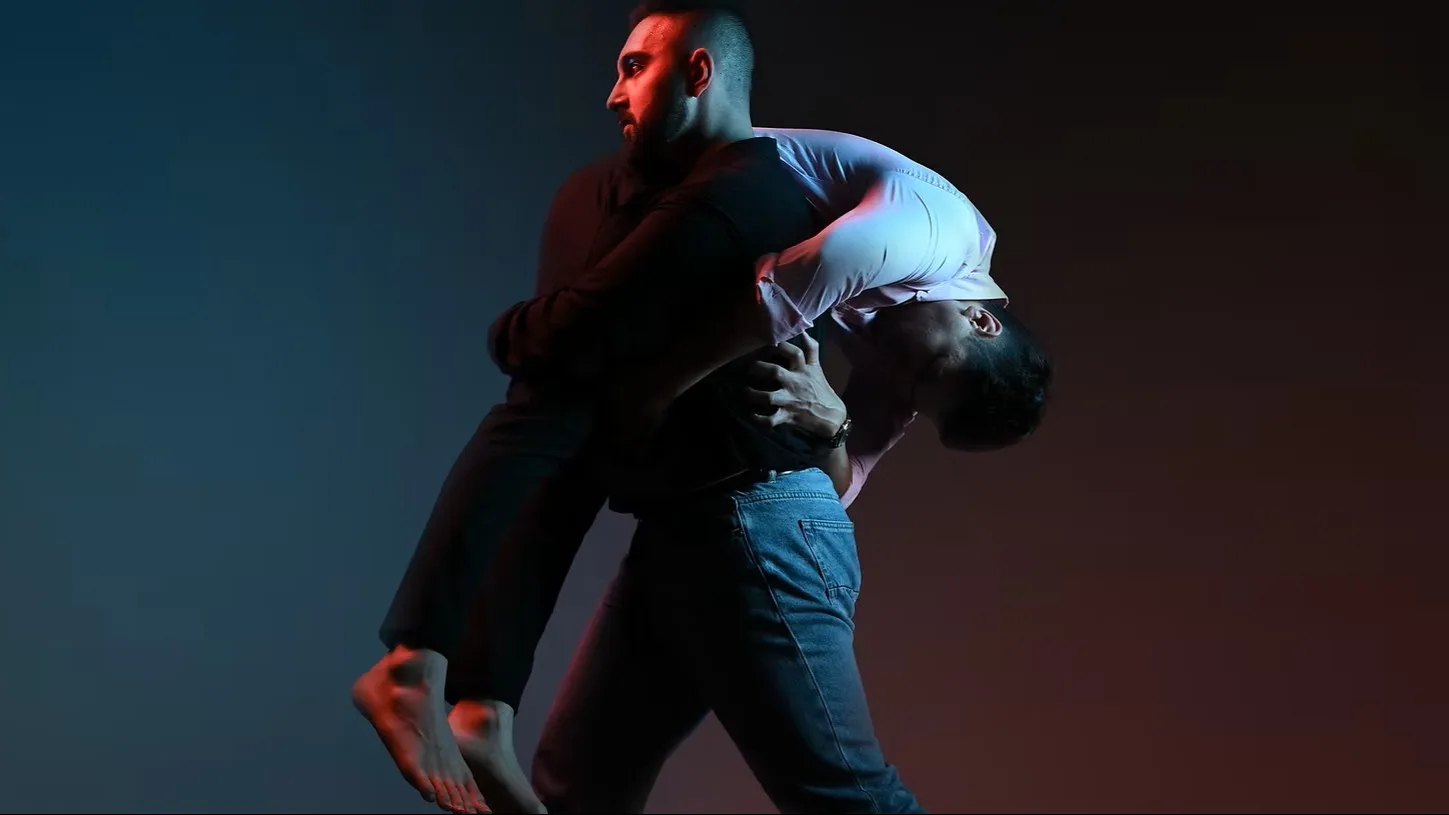What I wasn’t expecting during a performance of Blood Wedding was Manos Loizos’ iconic zeibekiko of Evdokia, a powerful, brooding solo dance familiar to most Greeks.
Made famous in the 1971 Greek film Evdokia about a prostitute and a soldier, the dance is about pain, pride, and passion. But that was just one of the many surprises in this raw, physical, and moving adaptation of Federico García Lorca’s tragedy at Theatre Works in St Kilda.
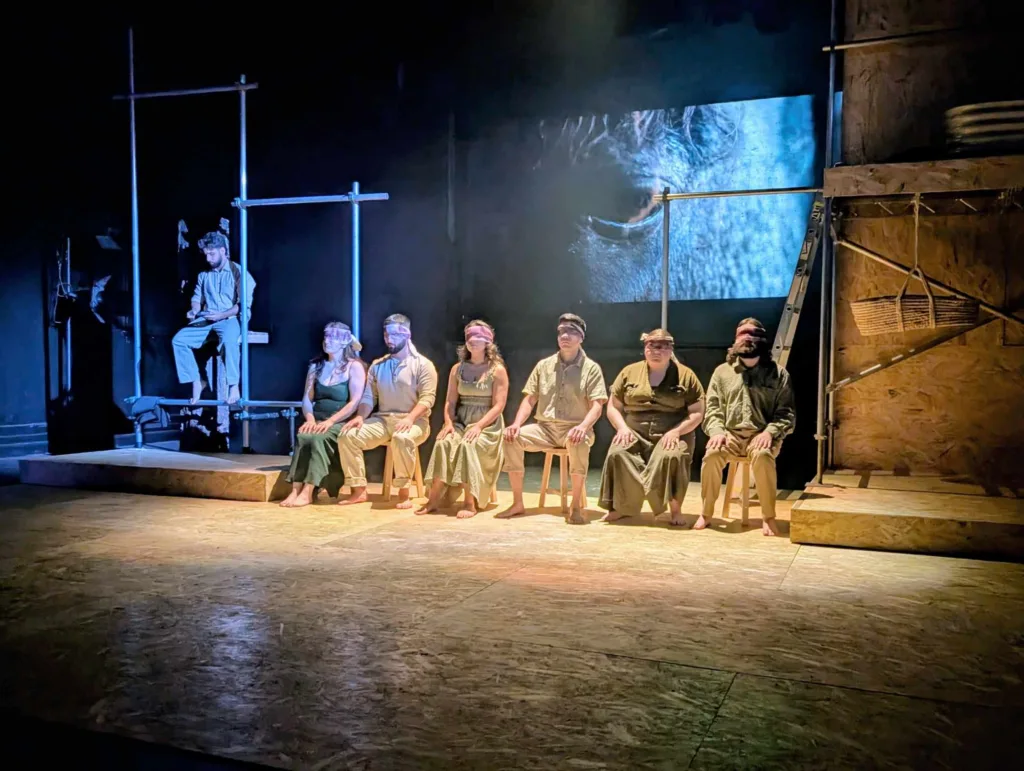
It’s clear from the outset that we’re in for a treat. As we enter the space, actors greet us playfully, handing out binoculars, pouring us glasses of water, going about their business as though we have entered a village square rather than a theatre.
Janis Joplin’s Piece of My Heart is the soundtrack, powerful though the vibe is laid back. Until it isn’t. Joy drains. Faces go deadpan. Silence falls. Lighting darkens. The story begins, and we are sucked into a heavier world.
The bride (Teresa Giansiracusa) undresses, baths, and dreams of Leonardo Felix (Dion Ziapantis), married to the cousin/wife (Mia Cannollo).
Her movements are slow and sensual, focused as much on motion as on Lorca’s poetic words. We are drawn into a place of longing, confusion, and fate in the build-up to the wedding celebration.
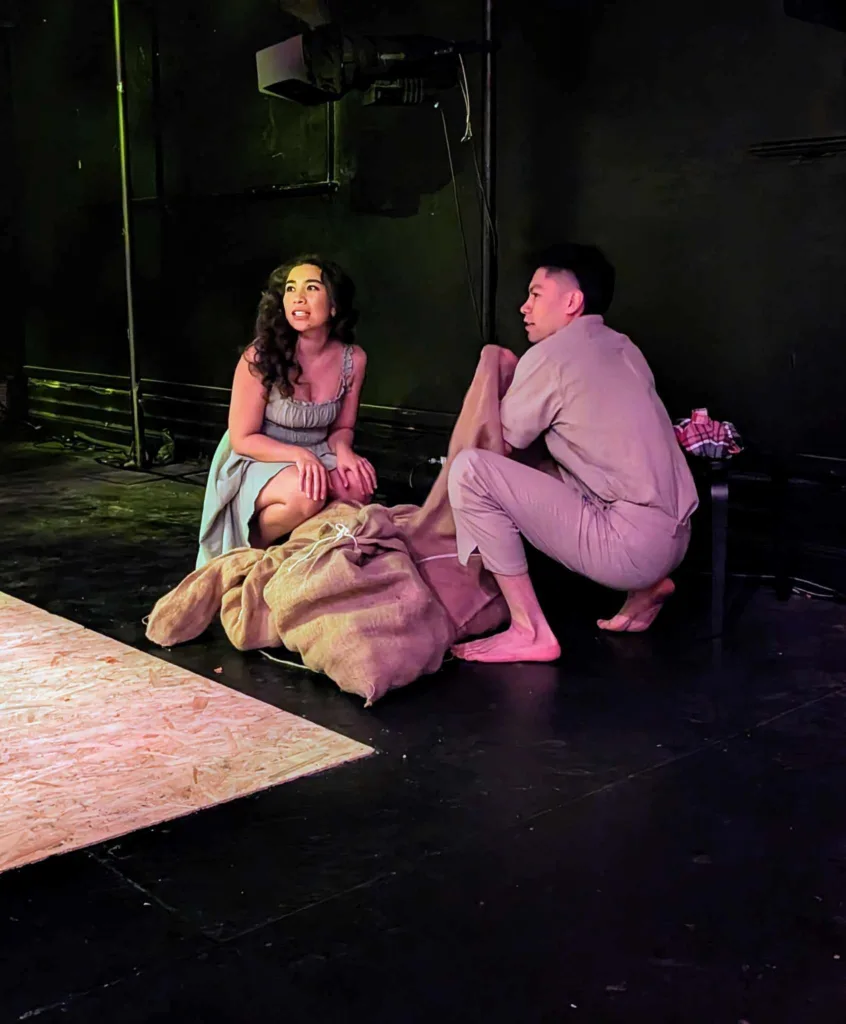
Bucolic and tense, the wedding feast is reminiscent of Emir Kusturica’s wedding finale in Underground: chaotic, folkloric and layered. Amid the dancing and music, time slows. Gazes lock. Hands hover over the bride like halos. The symmetry on stage is painterly, evoking reverence and destiny.
Just as the tension nears its crescendo, Evdokia’s dance rips through with passion. Lifting the weight of grief through improvisation and defiance. And we, the audience, are pulled in. We clap. We’re cajoled to dance. We become complicit in the tragedy that unfolds.
Written by Lorca in a week, Blood Wedding was inspired by a true story of a fatal feud between two families in the mountains of rural Spain. Thematically, it sits where Romeo and Juliet meet Carmen wrapped in Pulp Fiction.
Lorca’s metaphors are given a modern twist, but they are not overstylised. Traditional Lorcaesque elements – horses, the moon, water, metal blood – are present throughout.
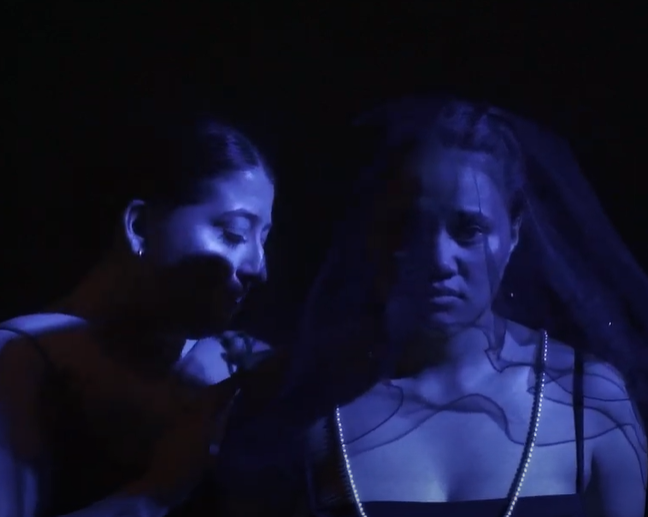
Lighting designer Sidney Younger’s projections of wild, relentless horses capture Leonardo’s unbridled desire in the build-up to the bloodbath with the groom (Jonathan Pindiura). Bloody, brutal and beautifully choreographed, as Leonardo utters his last words: “It’s not your fault. It’s not mine. It’s just the way things are.”
Fate. Kismet. Death.
Director Deborah Leiser-Moore said this 1933 work, the first of Lorca’s rural trilogy (Blood Wedding, Yerma and The House of Bernalda Alba) speaks to 2025, “a fragile time in the world.”
It reminds us that the cycle of blood, war, and silence plays on a Lorca loop to this very day. From the mountains of Spain to areas where sharia law prevails and Coldplay concerts in Boston where a CEO and head of HR are killed, not with swords, but with memes, it’s a familiar tale. Desire is dangerous in a world ruled by tradition.
The knife still cuts, human savagery, the struggles of women in male dominated society, inequality are all too common. In this production, Lorca is not just honoured but reborn as his poetry and pain are brought into a world we recognise: multicultural, wounded, uncertain.
These are topics that Leiser-Moore enjoys tackling with her signature bold, highly visual theatrical language.
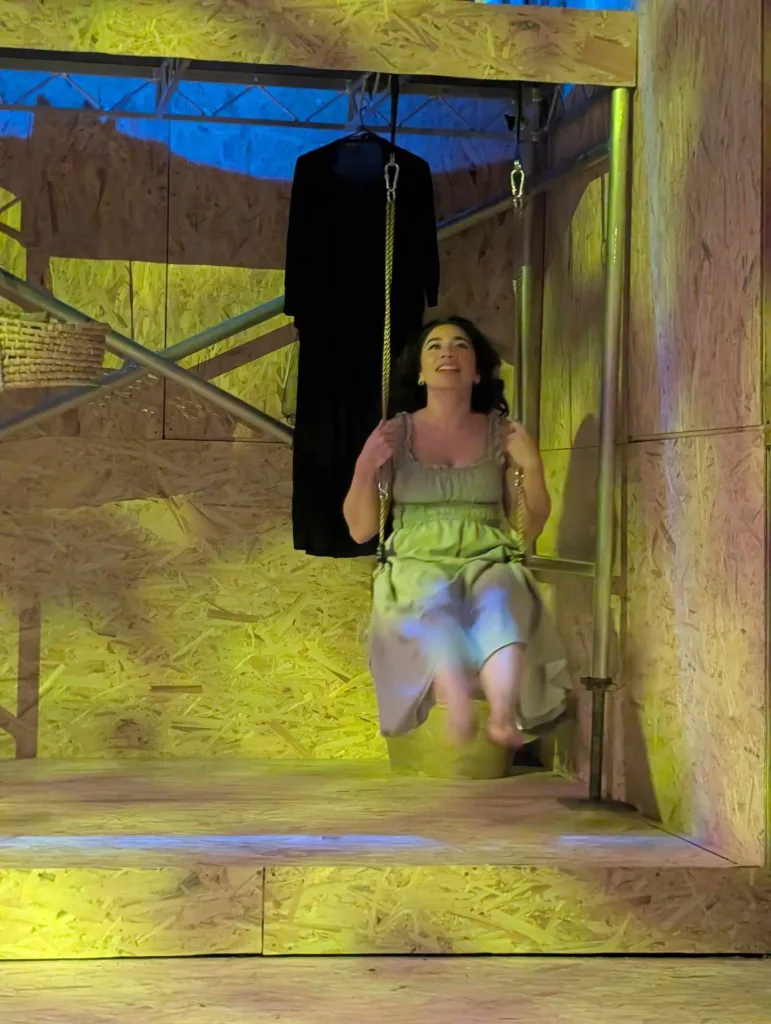
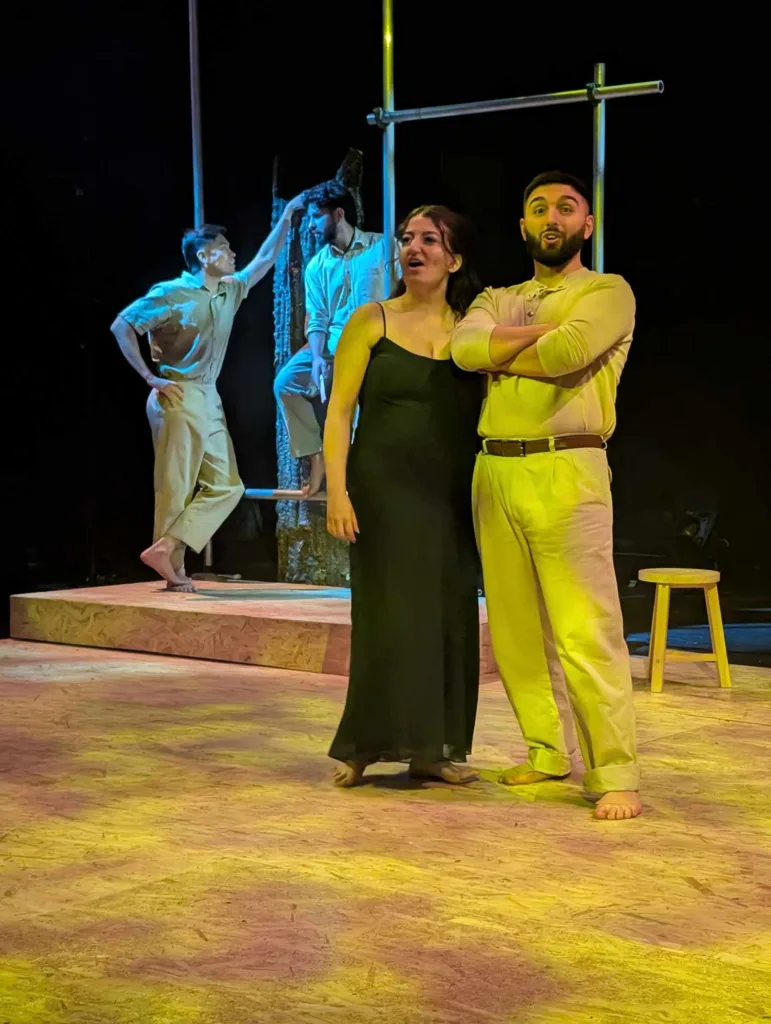
The cast (Connor Raselli, Dion Zapantis, Jonathan Pindiura, Mia Cannolo, Mohamed Al Ziady, Tess Lynch Steele, Teresa Giansiracusa) are young training graduates from the JMC Academy – an ideal ensemble to capture Leiser-Moore’s vision as they reflect the diversity of Australian theatre today. Despite diverseness, they work collaboratively, each contributing to the narrative and emotional depth of the work as though they were cut from the same multicultural cloth.
In this production, Theatre Works continues to prove that it is vital and relevant despite having no federal funding and reduced support. This company champions bold, independent voices and pushes boundaries. It is fiercely local, fearlessly ambitious – giving space to new talent, daring work, and real stories.
Blood Wedding cuts deep. And you’ll feel every moment. Don’t miss it at Theatre Works until 2 August, Tuesday to Saturday, 7.30pm. *Originally published on It’s On the House
